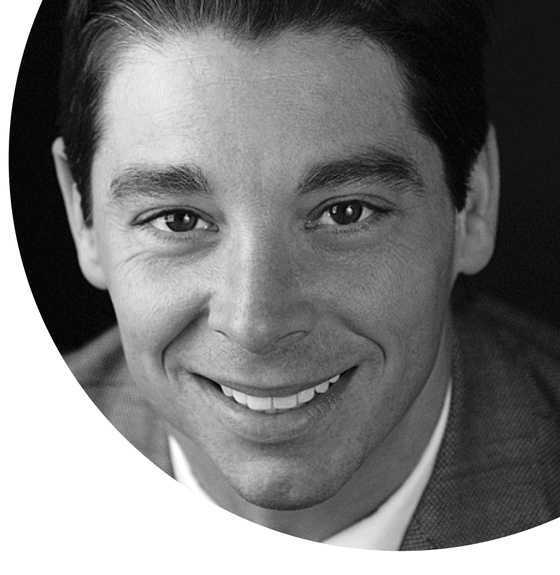
DEPARTMENTS
ETHICS
DAVID ROSKELLEY, MSPH, CIH, CSP, is a member of JIHEEC and of the ABIH Board of Directors. He can be reached at dave@rrenviro.com or (801) 541-1035.
Acknowledgement:
Jeffrey Throckmorton, CIH, MSPH, member and past chair of JIHEEC, also contributed to this article. He can be reached at hss@sisna.com or (801) 205-7900.
Code vs. Code
When Ethical Principles Conflict, Which One Takes Precedence?
BY DAVID ROSKELLEY
An individual at the ABIH Board Forum at AIHce 2015 asked a question regarding the ABIH Code of Ethics and how it might apply to a CIH who is also an attorney. The individual was concerned that “attorney-client privilege” might “trump” the ABIH Code of Ethics under certain circumstances. It’s an intriguing and somewhat nuanced question. Indeed, does one code trump the other? Can they coexist?
I was hesitant to respond. I’m a member of the ABIH Board of Directors, but I’m not an attorney, nor do I play one on TV. However, thinking about the possible answers to this question can help us reflect on the application of ethics in our profession.
The easy answer, and the one I feel is most important, is that CIHs have an obligation to protect the health and well-being of those we serve. The preamble to the ABIH Code of Ethics states, “First and foremost, ABIH certificants and candidates give priority to health and safety interests related to the protection of people.” This is similar to the Hippocratic Oath taken by new physicians: “I will prevent disease whenever I can, for prevention is preferable to cure.” As health and safety professionals, we have a duty to champion the worker the same way a doctor champions his or her patients—even if doing so conflicts with other ethical codes. Anything less should not be tolerated.
We have a duty to champion the worker the same way a doctor champions his or her patients—even if doing so conflicts with other ethical codes.
SHADES OF GRAY
One interesting aspect of service on the Joint Industrial Hygiene Ethics Education Committee (JIHEEC) is the opportunity to discuss “what-ifs.” Ethics discussions don’t always have a black-or-white answer; often, there are shades of gray.
The question of whether the ABIH code can coexist with attorney-client privilege is essentially a question about conflict of interest, which figures prominently in both disciplines. Here’s what the ABIH Code of Ethics, Section II.A.4, has to say:
[The CIH shall m]aintain and respect the confidentiality of sensitive information obtained in the course of professional activities unless: the information is reasonably understood to pertain to unlawful activity; a court or governmental agency lawfully directs the release of the information; the client or the employer expressly authorizes the release of specific information; or, the failure to release such information would likely result in death or serious physical harm to employees and/or the public.
Further down, in the section on conflict of interest and appearance of impropriety (II.B), items 1 through 3 state that the CIH shall:
1. Disclose to clients or employers significant circumstances that could be construed as a conflict of interest or an appearance of impropriety. 2. Avoid conduct that could cause a conflict of interest with a client, employer, employee or the public. 3. Assure that a conflict of interest does not compromise legitimate interests of a client, employer, employee or the public and does not influence or interfere with professional judgments.
But what if the CIH has, under “attorney-client privilege,” also become aware of significant issues that happen to threaten employees or the public, but has been retained by an irresponsible and even deadly company? In the United States, attorneys have adopted guidelines in the form of the American Bar Association (ABA) Model Rules of Professional Conduct. These vary slightly between states, but are essentially the same nationwide.
Attorneys appear to be slightly more loquacious than we are: the ABA code contains 58 rules, each with multiple components, in eight main sections. Several of ABA’s rules and related subcomponents touch on a variety of issues related to conflict of interest, but rule 1.6, “Confidentiality of Information,” is particularly relevant. This rule states:
(b) A lawyer may reveal information relating to the representation of a client to the extent the lawyer reasonably believes necessary:
(1) to prevent reasonably certain death or substantial bodily harm...
So it does appear that the ABA code provides an “escape clause” in such cases that would allow an attorney to be in harmony with the ABIH code of ethics. In preparing this article, I spoke with my own attorney, who said essentially the same thing: that in cases of possible death or serious harm, allowances were built into their profession.
OHS AT THE FOREFRONT
Our world as CIHs can be complex. I don’t purport to have all of the answers, but I do want to highlight the need for us to think about other codes and potential complications as we practice our profession. Regardless of which position might take precedence over another, CIHs who keep worker health and safety at the forefront will ultimately reach the correct conclusion.
What are your thoughts? The JIHEEC challenges you to discuss this article with a co-worker, spouse, family member, or friend. Please share your feedback with us.
JIHEEC: Promoting Ethical Practice
The Joint Industrial Hygiene Ethics Education Committee (JIHEEC) promotes awareness and understanding of the enforceable code of ethics published by the American Board of Industrial Hygiene (ABIH) as well as the ethical principles of AIHA, ACGIH, and the Academy of Industrial Hygiene. It includes representatives from all four organizations.
JIHEEC is not an enforcement group or resolution board. It serves the profession by focusing attention on ethical dilemmas facing the industrial hygienist, and can also serve as a sounding board for challenges facing the professional. AIHA is the Secretariat of the JIHEEC and oversees its activities.
thesynergist | TOC | NEWSWATCH | DEPARTMENTS | COMMUNITY

